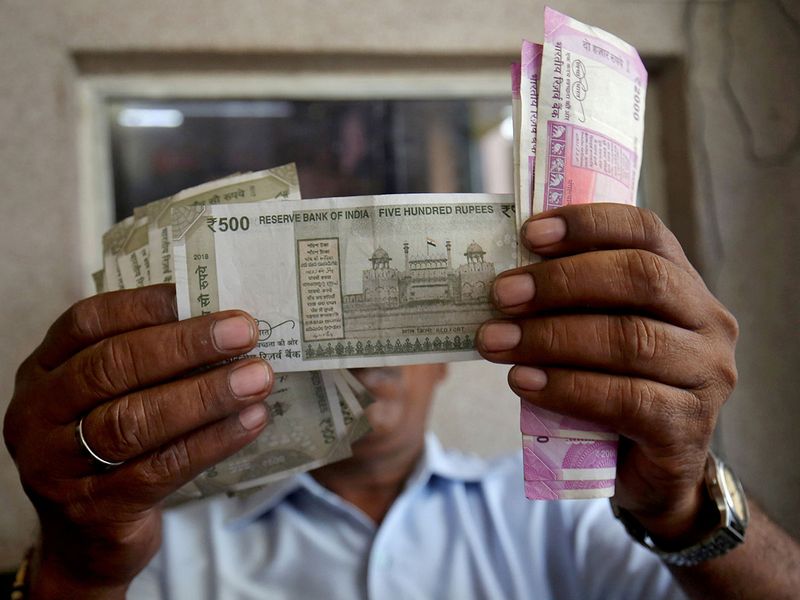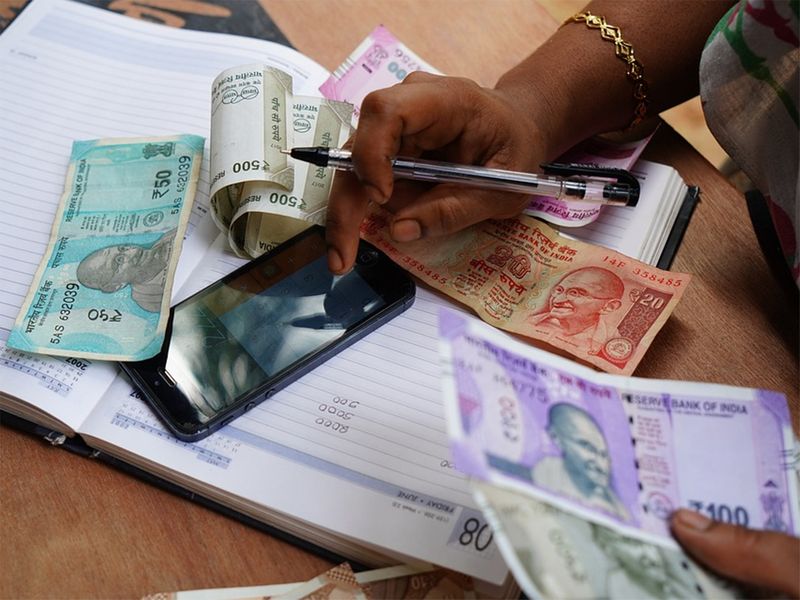
Dubai: Like any money-related dealings, the purchase of property by NRIs in India is also governed by guidelines issued by the Reserve Bank of India (RBI).
While a non-resident Indian (NRI) interested in buying a property in India is permitted to do so, his or her property investment must be made in line with the provisions of the Indian Foreign Exchange Management Act (FEMA).
Can NRIs buy property jointly with others?
RBI allows NRIs to jointly own a property with another NRI or a resident Indian. However, a resident Indian or a person, who is otherwise not allowed to invest in a property in India, cannot become a joint holder in such property, irrespective of the second holder’s contribution towards the purchase.

Residences or commercial property can be bought by NRIs freely and there is no restriction on the number of properties that can be purchased. NRIs can also inherit the same from any resident Indian.
There is no requirement of obtaining any specific permission in such cases and also no need to send any information to RBI for this purchase. Also, there is no need to file any document with RBI in this regard.
In case the interested NRI is unable to come to India for completing the property purchase, the same process can be carried out by giving a special PoA (Power of Attorney) to another person.
However, for the purchase of any agricultural property or a farmhouse or plantation, NRIs need to apply for specific permission from RBI.
What does the FEMA norms say regarding NRIs jointly buying property with others?
There are no specific guidelines under FEMA for purchase of property by NRI jointly with resident Indians. An NRI is allowed to sell or gift any immovable property to any resident Indian.
Any property can be gifted to NRI by an NRI other than agricultural property, plantation or a farmhouse.

The restrictions which apply to NRIs for purchase of agricultural property, farmhouse or plantation continue even if it is a joint purchase.
The transactions have to be routed through proper banking channels under FEMA and RBI guidelines.
An NRI is also allowed to continue to own any agricultural land, plantation property, or farmhouse that he owned when he became an NRI, which he is otherwise not allowed to purchase, after becoming an NRI.
They are also allowed to let out the property, irrespective of when it was acquired. The rent received from such property, can be remitted, after appropriate Indian taxes have been paid on such rent.
Likewise, any NRI is allowed to sell, or gift an immovable property to any person resident in India. He or she can also gift or transfer any property, other than agricultural property, farmhouse, or plantation property, to any NRI.
What taxes apply to an NRI buying a property in India – jointly or otherwise?
Like any other resident of India buying a property, an NRI is liable to pay the required taxes – stamp duty, registration fee, post purchase annual property taxes and even goods and services tax (GST) in case of an under-construction property.
You can invest in a property in India to earn rental income, as well. However, you would be taxed at 30 per cent via ‘tax deducted at source’ (TDS, explained below), while the remaining amount may be repatriated under FEMA rules.

In the case of proceeds that are earned through the sale of an immovable property, it can be repatriated after deduction of between 20 per cent and 30 per cent TDS, depending on whether it is a long-term or short-term capital gain.
It simply means the person responsible for making specified payments such as salary, commission, professional fees, interest, rent, etc. is liable to deduct a certain percentage of tax before making payment in full to the receiver of the payment.
As the name suggests, the concept of TDS is to deduct tax at its source. Let us take an example of TDS assuming the nature of payment is professional fees on which the specified rate is 10 per cent.
XYZ Ltd makes a payment of Rs50,000 (Dh2,450) towards professional fees to Mr. ABC, then XYZ Ltd shall deduct a tax of Rs5,000 (Dh245) and make a net payment of Rs45,000 (Dh2,205), (50,000 deducted by Rs5,000) to Mr. ABC.
The amount of Rs5,000 deducted by XYZ Ltd will be directly deposited by XYZ Ltd to the credit of the government.
What benefits apply to an NRI joint-owners or couples buying a property in India?
Basically, there are four major advantages of joint ownership which include better loan eligibility, double tax benefits, stamp duty benefit for woman homebuyer and easy succession of the property.
• Double tax benefits:
Tax benefits can be claimed while availing home loans. The joint owners of a property can claim a tax deduction of Rs150,000 (Dh7,351) on the principal amount.
The Indian norms allows homeowners a tax deduction limit of Rs200,000 (Dh9,801) on the interest rate of the home loan. But if a married couple buys a home jointly then they claim two kinds of tax benefits.

They can claim separately for tax deductions. So, under the above norms, a couple can claim a tax deduction of Rs300,000 (Dh14,702) up to Rs400,000 (Dh19,603).
However, tax benefits under the above-mentioned norms cannot be claimed for an under-construction property.
• Loan eligibility:
Apart from that, tax experts also say that it is always easier to do the transactions when the property is bought jointly. Banks approve an application for loan after inspecting the rate of income of the applicants.
Couples can apply for joint loans if the property has been registered jointly in their names. In such cases the banks consider the joint income of both the husband and wife. So, they could easily avail a loan of higher amount.
Joint registration of property is also advisable as the spouse is always the successor. This will prevent unwarranted problems in the future after the demise of any person.
• Stamp duty benefits for women borrowers:
In India, Delhi, UP, Punjab, Haryana and Rajasthan, offer relaxations in stamp duty for women buyers. Punjab reduced the stamp duty charges from 9 per cent to 6 per cent in 2017, for a limited period.
It maintained that from April 1, 2019, urban areas would again invoke a stamp duty charge of nine per cent and the same would be 6 per cent in rural areas.
The stamp duty rate in Maharashtra, which was recently increased to six per cent from the previous five per cent, is uniform for both, men and women.

What NRIs need to do when applying for a home loan – jointly or otherwise
While both you and your spouse can jointly apply for a home loan, it would be considered an NRI loan even if you apply with a resident Indian.
Thus, even if the asset is jointly owned with an Indian resident, it is the NRI who will be considered as the main applicant and his income will be primarily considered for loan eligibility owing to his age, the years left of his service, etc.
The EMI payments will also have to be made by the NRI, which he or she could do either through his non-resident account or by opening a non-resident) account jointly with the Indian resident, and then issuing cheques or standing instructions from the account.
However, this is subject to several conditions. Experts, therefore, recommend any looking to do so to visit the office of a lending institution for a detailed discussion.
Banks allow an advance of 80-85 per cent of the value of the property, subject to the gross monthly income of an individual.
For example, if the home that you plan to buy cost Rs10 million (Dh492,867), you can take a loan of Rs8 million (Dh392,089) to Rs8.5 million (Dh417,126).

NRIs: Risks to keep in mind when buying a property in India – jointly or otherwise
If you have fixed on a house or a plot of land in India, you can fund it by taking a home loan, but do keep in mind that you need required documents and keep them ready for the know-your-customer process.
Also make sure that you have appointed a PoA (Power of Attorney) for the loan. Do see if the bank that you are taking the loan from charges a prepayment penalty or not.
Some banks charge 2 per cent on the outstanding amount and whatever has been pre-paid in the last 12 months for loans taken on fixed rate. The amount of loan that one can avail differs from bank to bank.
For instance, ICICI Bank Ltd provides one with a home loan of between Rs500,000 (Dh24,503) and Rs10 million (Dh492,867) and Citibank will give you a home loan of up to Rs5 million (Dh245,056).








